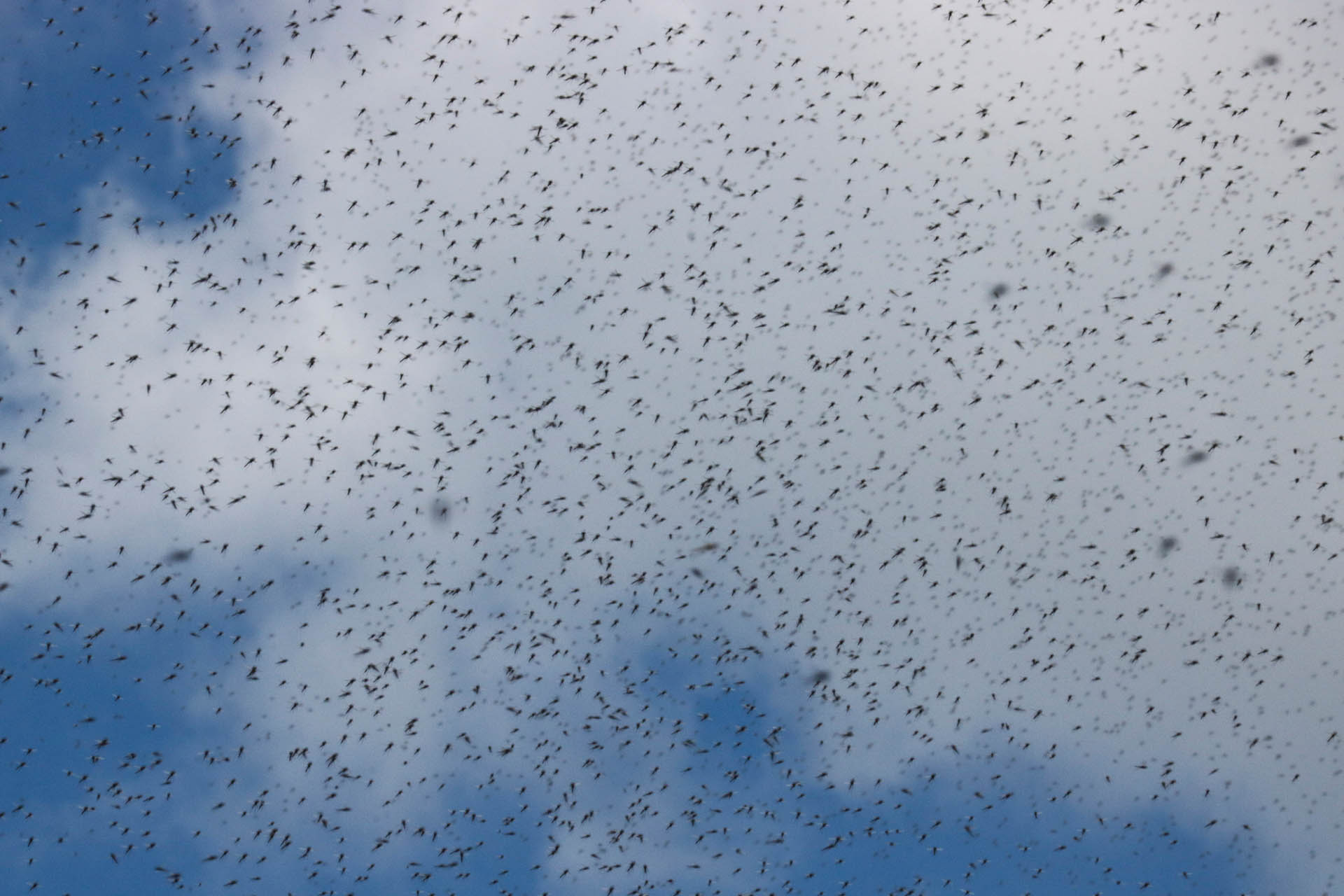Professor Matthew Baylis, who leads the LUCINDA group, said, “All insects are significantly affected by climate, and so are likely to be affected by climate change; and this implies that most disease vectors, and the diseases they spread, may also be affected by climate change.
“But while we know that the vectors and diseases will respond to climate change, we do not know how. Will they expand or retract - or both? How fast will they spread? Will the incidence of disease increase?”
A biologist by training, with expertise in infectious disease epidemiology, especially diseases spread by insect and tick vectors, Matthew’s specialism is diseases of animals spread by biting midges, and diseases spread to people and animals by mosquitoes. His LUCINDA colleagues comprise a mix of people with expertise in entomology, data science and modelling.
Modelling indicates diseases sensitive to climate
The group has shown that the majority of infectious diseases are sensitive to the effects of climate, but particularly vector-borne diseases. Modelling indicates that climate change should facilitate the spread of vectors and vector-borne diseases into more temperate regions, with more intense outbreaks that are harder to control.
“We are already seeing this happen,” says Matthew. “Midge-borne diseases of livestock have become endemic in Europe. And with mosquito-borne diseases emerging and spreading in Europe, holiday-makers to the south of France and Spain are now at risk of getting dengue fever. Mosquito species known to be able to spread diseases to people have recently colonised parts of the south of England.”
The group’s research aims to understand and, ultimately, predict these events before they happen, so that measures can be put in place to prevent or deal with them.
Research for scientific and societal benefit
The LUCINDA group is contributing to policy briefs aimed to inform politicians and get them to treat the climate crisis with the seriousness it deserves, and to the development of national policies addressing the disease-associated impacts of climate change.
Its research aims to help protect society from some of the negative impacts of climate change; in particular by providing early warning of future disease risks so that mitigations can be implemented in advance of outbreaks.
Research environment provides mixed expertise
“The University of Liverpool provides the perfect mix of expertise to address complex questions around the impacts of climate change on vector-borne diseases of humans and animals,” says Matthew.
“The presence of a medical school, veterinary school and tropical school – the latter with expertise in insect-borne disease – combined with climate experts and mathematical modellers, has enabled us to make huge progress into predicting our disease future. Access to excellent high containment laboratories for human viruses, and ready access to UK mosquitoes and midges has also enabled us to progress with empirical work that supports modelling.”
The LUCINDA group has trained a number of PhD and Masters students, as well as offering research tasters to undergraduates. PhD students have access to state-of-the-art facilities and, for relevant projects, excellent opportunities to collaborate both nationally and internationally.
Back to: Research
